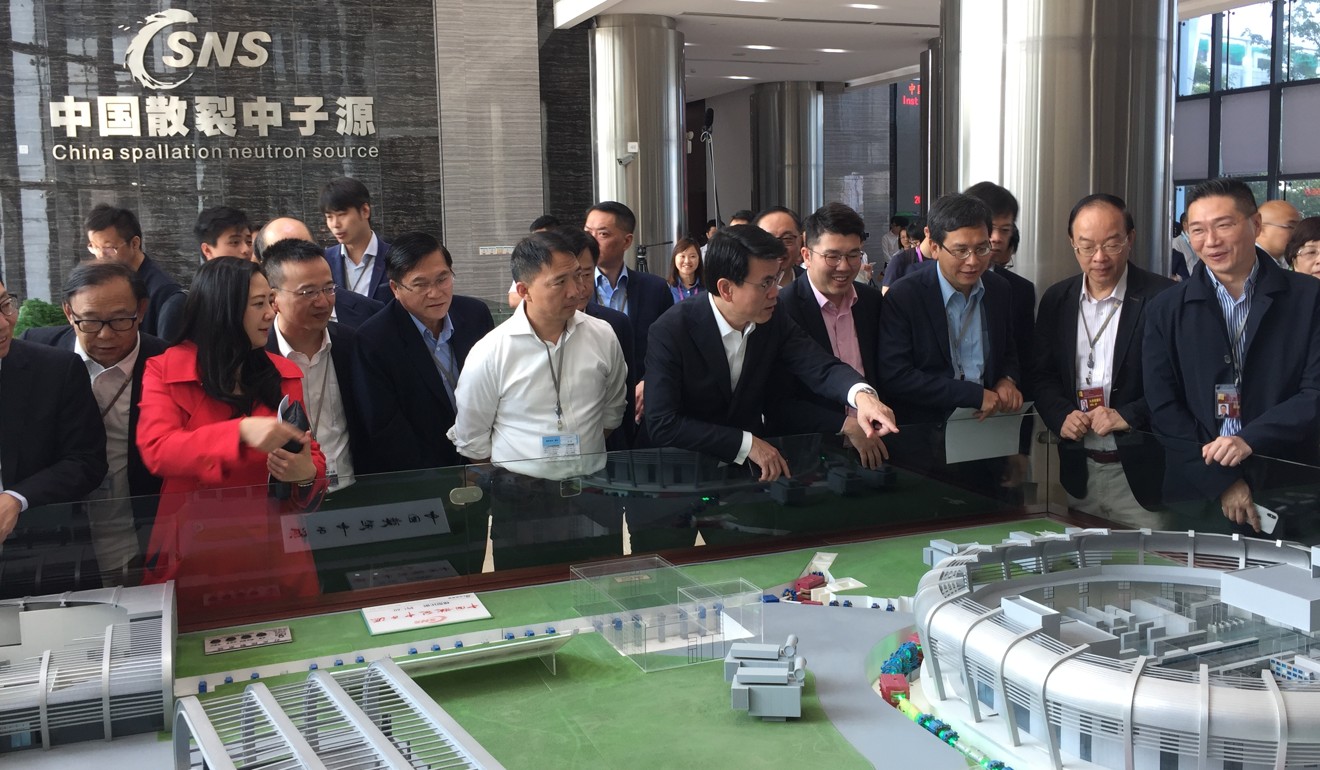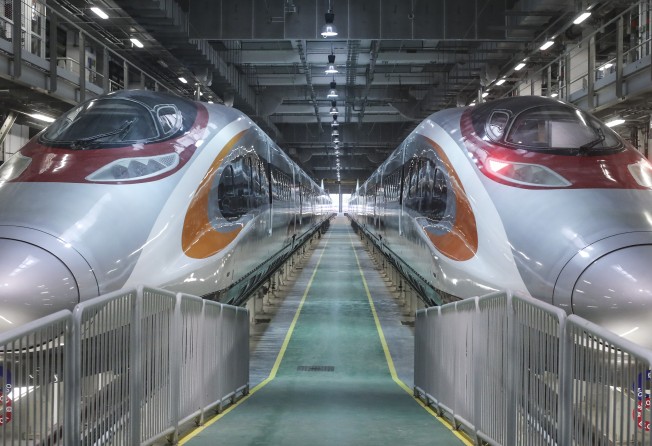
Trip on cosy high-speed train will not sway us over contentious joint checkpoint plan, say Hong Kong opposition lawmakers
Delegation of legislators including nine pan-democrats end trip to mainland China with visit to railway station and ride on express train to Shenzhen

Hong Kong’s pro-democracy legislators say they will not be swayed in their opposition to a controversial joint checkpoint plan for a cross-border rail link despite their unprecedented journey on the line’s mainland China section on Sunday evening.
The opposition pan-democrats also said the railway issue concerned the constitutionality of proposed legislation, and the dignity of the city’s mini-constitution, the Basic Law, not the personal feelings and comfort of individuals and politicians.
“We have no problem with its technology or cosiness, but [the joint checkpoint] is an issue about how you look at the legal consequences for Hong Kong … It means applying mainland law in the city,” Democratic Party chairman Wu Chi-wai said.

They were speaking before a delegation of Hong Kong legislators concluded a three-day trip of Guangdong province with a tour of Guangzhou South railway station and a 40-minute journey from there to Futian, Shenzhen in the evening.
The delegation, comprising 23 pro-establishment and nine pan-democrat lawmakers, also visited a tech company which develops drones big enough for up to two people, and met mainland officials including Guangdong deputy governor Ouyang Weimin and Guangzhou deputy mayor Chen Zhiying.
The group, the largest to visit the mainland since 2014, embarked on a five-city tour of Guangdong on Friday to study Beijing’s “Greater Bay Area” project, which aims at forging an economic powerhouse across Hong Kong, Macau and nine cities in the province.
The 110km mainland section of the Guangzhou-Shenzhen-Hong Kong Express Rail Link began operating in 2011, but the 26km Hong Kong section was only expected to open in September this year. Hong Kong officials have urged legislators to approve the joint checkpoint plan by July, so that train services could be commissioned as scheduled.
But the pan-democrats and an influential group of the city’s legal professionals have strongly criticised the plan for contravening the Basic Law as it would see national laws enacted in part of the West Kowloon terminus in Hong Kong.
Civic Party leader Alvin Yeung Ngok-kiu, a barrister, said: “It’s an objective fact that the train is fast, but does that mean that it can override our constitutional framework?”
Last week, Regina Ip Lau Suk-yee, who chairs a bills committee in Hong Kong’s legislature, set a deadline for her colleagues to scrutinise the controversial legislation, aiming to close discussions by May 7 so that the bill can be tabled for the full Legislative Council’s final approval.
Ip said on Sunday that she did not think the pan-democrats would change their stance after the train journey, but it was still beneficial for them to experience it.
“Some of them have not visited the mainland for 10 years, or have never been on a high-speed train … I hope that they can understand and support the bay area project, and transport infrastructure enables and promotes integration,” Ip said.
Concluding the three-day trip, Secretary for Constitutional and Mainland Affairs Patrick Nip Tak-kuen said the government would continue to work with lawmakers on asking mainland authorities to offer more convenience to Hongkongers doing business, studying or living in the nine Guangdong cities.
“With a world-class bay area, Hong Kong … will have new breakthroughs in many areas,” Nip said.
Charles Mok, convenor of the pan-democratic camp, said the three-day trip showed them the importance of the “one country, two systems” policy.
“Under the principle, we kept our rule of law and professional integrity … We are cooperating with Beijing when we maintain this principle,” Mok said.